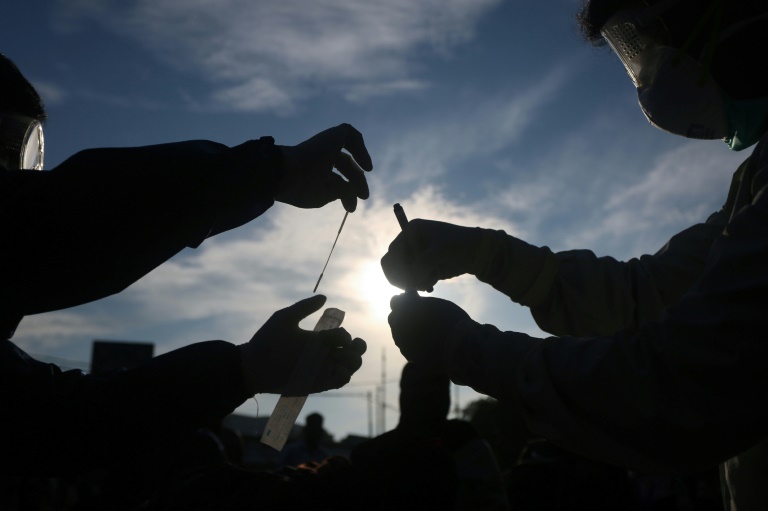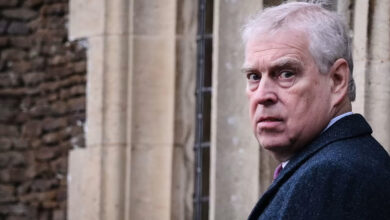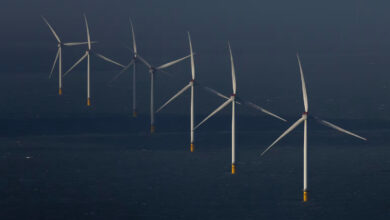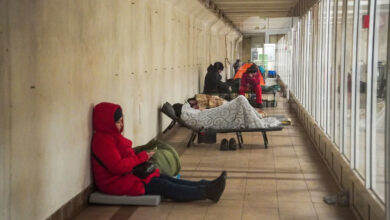
The global death toll from the coronavirus pandemic topped a quarter of a million on Tuesday, with the US government predicting a further surge in fatalities as an international vaccine drive garnered $8 billion in pledges.
The dire forecast from the United States came as much of the Western world emerged from weeks of lockdown, with hopes that the disease may have peaked in Europe after nearly two months of confinement.
But the global progress did little to cool a war of words between the US and China — fueled by American claims the virus originated in a Chinese laboratory, a theory the World Health Organization (WHO) labelled “speculative.”
An AFP tally of official figures showed Europe is the hardest-hit continent with around 145,000 fatalities. The US has recorded close to 68,700. Together they account for more than 85 percent of global deaths.
Since the disease first surfaced in China late last year the number of confirmed cases has reached almost 3.6 million.
The grim figures were compounded Monday by an internal government estimate in Washington that forecast the daily COVID-19 infection rate in the US could surge eight-fold to 200,000 per day by June 1, and the death toll could rise to 3,000.
– ‘Evolved in nature’ –
A special telethon backed by the WHO but snubbed by Washington pulled in $8.1 billion to support international efforts to develop a vaccine against the coronavirus.
Leaders of major European powers, Japan, and Canada made the biggest pledges, along with philanthropists including Bill and Melinda Gates.
“This was a powerful and inspiring demonstration of global solidarity,” said WHO chief Tedros Adhanom Ghebreyesus.
Seeming to defend its non-participation, the US State Department insisted the United States is “leading” the global response to the COVID-19 pandemic, and said it has spent more than one billion dollars together with US drug companies to work on a vaccine.
As the country struggles to contain its outbreak, the White House has stepped up an offensive against China, with Secretary of State Mike Pompeo saying there is “enormous evidence” the virus emerged in a lab in the Chinese city of Wuhan.
That claim was rejected Monday by the WHO as well as top US epidemiologist and government adviser Anthony Fauci.
“Everything about the stepwise evolution over time strongly indicates that (this virus) evolved in nature and then jumped species,” he said.
US President Donald Trump has acknowledged that deaths will go beyond his earlier prediction of 60,000, saying: “We’re going to lose anywhere from 75, 80 to 100,000 people.”
His estimate underscored the tough, politically-tinged debate over reopening, which pits concerns about a rising death toll against the need to restore national economies shattered by prolonged shutdowns.
On Monday US manufacturing giant General Electric announced it will cut an additional 10,000 jobs from its aviation sector as the pandemic decimates the industry.
The economic fallout in America prompted the US Treasury to announce it will borrow a record three trillion dollars in the April-June period, largely to finance spending on virus relief programmes.
In Australia officials said the economy is losing Aus$4 billion (US$2.5 billion) every week the nation’s virus shutdown continues, with GDP forecast to plunge 10 percent in the June quarter.
– ‘We are all afraid’ –
People across Europe basked in a return to the outdoors, mixed with a dose of trepidation about life ahead and the economic damage wreaked by lockdowns.
Workers banged away at construction sites in Rome, police handed out masks in Madrid and older children returned to school in Vienna.
“We are all afraid,” said a masked Cristina Jimenez, 31, in Madrid.
“Who hasn’t lost their job already may lose it in the next few months,” she added.
“But what is important is that we are well. With work, you can always find another.”
Spain and Portugal made face masks mandatory on public transport as they further eased their lockdowns, while Slovenia, Poland and Hungary allowed public spaces and businesses to partially reopen.
Africa’s biggest city, Lagos, got back to work at the end of a five-week virus shutdown, while in India police waded in to separate people jostling to buy alcohol for the first time in 40 days as the world’s biggest lockdown eased.
New Delhi said it had also embarked on a “massive” operation involving naval ships and aircraft to bring back some of the hundreds of thousands of Indian nationals stuck in the Maldives and United Arab Emirates due to coronavirus restrictions.
Hong Kong meanwhile announced plans to ease major social distancing measures, including by reopening schools, cinemas, bars and beauty parlors after the Chinese territory largely halted local transmission of the virus.
And in a ray of hope for the sports world, South Korea’s baseball players returned to action Tuesday in a new season, albeit to empty stadiums.
Friday will also see the delayed start of the country’s football K-League, and next week some of golf’s leading women players will tee up in a domestic tournament as South Korea becomes a rare hotspot for live sport.
– ‘There’s still beauty’ –
Culture of a different kind was providing a balm for people in Washington, where French harmonica player Frédéric Yonnet is putting on regular two-hour concerts for free for people gathering outside his home in the US capital.
Wanda Evans, basking in the music from her car, said: “There’s still art, there’s still talent, there’s still beauty to be shared in this world.”
burs-axn/hg
Image: AFP / KHAIRUL BASYAR Since the disease first surfaced in China late last year the number of confirmed cases has reached almost 3.6 million




